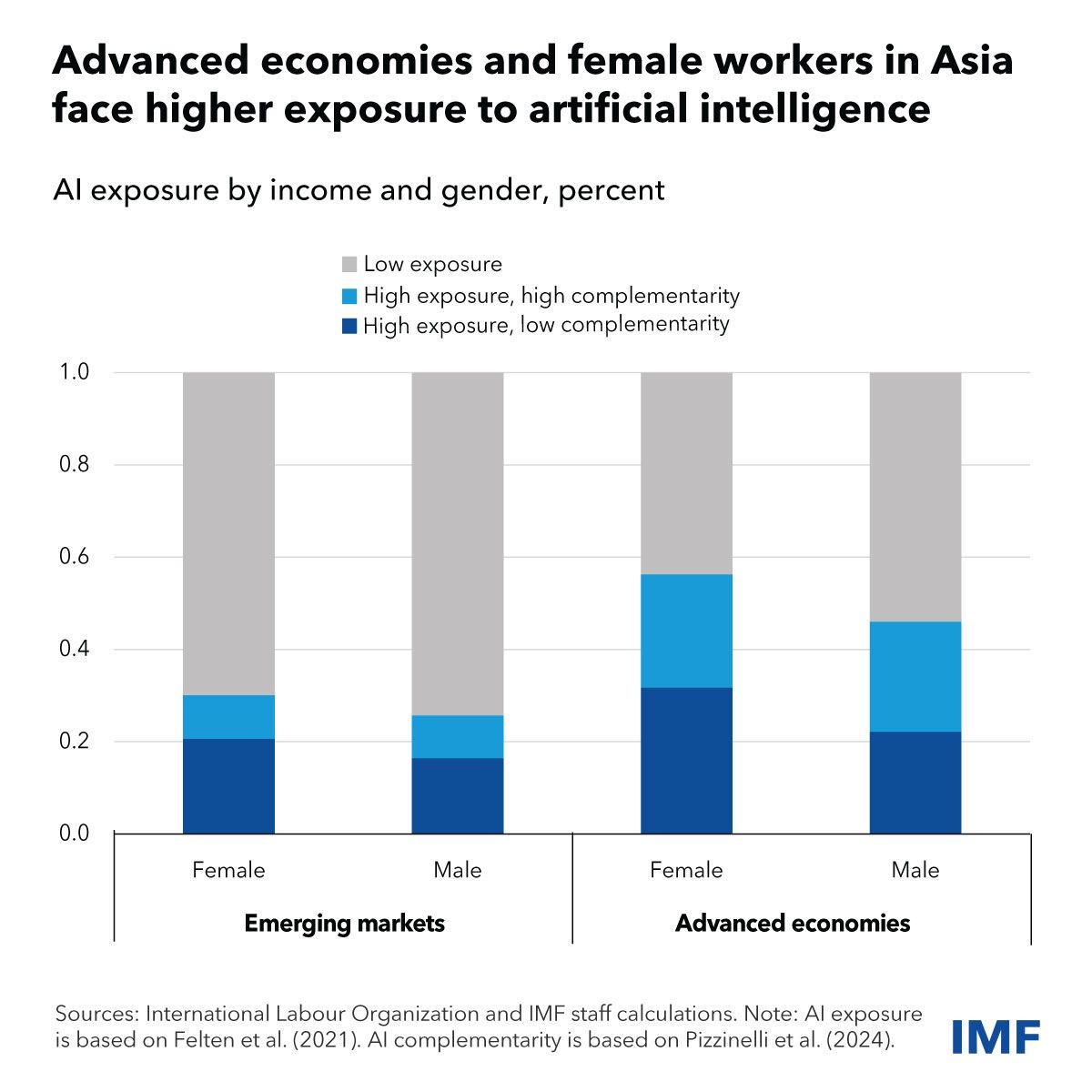ASIA-PACIFIC ECONOMIES TO BEFFECTED BY LABOR MARKET SHIFTS DUE TO ARTIFICIAL INTELLIGENCE

Asia-Pacific's advanced economies are more vulnerable to labor market shifts due to artificial intelligence (AI), with nearly half of all jobs in these economies exposed to AI, according to the latest Asia-Pacific Regional Economic Outlook. However, policymakers have recommended addressing this issue through effective social safety nets, reskilling programs, and education to help workers adapt to AI-induced changes.
The report reveals that about half of all jobs in advanced economies such as Singapore are at risk due to AI, citing service, sales, and clerical support roles that are more likely to be automated. In contrast, emerging market and developing economies such as Laos have fewer jobs at risk from AI, with only 3 percent of jobs rated as highly complementary.
Meanwhile, women in the Asia-Pacific region are disproportionately represented in occupations at risk of displacement due to AI, highlighting a need for targeted policies to mitigate this impact.
To address growing inequality stemming from AI-induced disruptions, policymakers must implement measures such as reskilling programs, education, and social safety nets. Furthermore, governments should set regulations that promote ethical AI use and data protection to mitigate the risks associated with AI adoption.
The International Monetary Fund (IMF) recommends a multi-faceted approach to address these challenges and tap into the benefits of AI for economic growth and improved productivity.
In a related comment, Kristalina Georgieva, IMF Managing Director, noted that "the labor market implications of AI pose significant challenges, but also present opportunities for growth and innovation." The IMF will continue to monitor the impact of AI on the Asia-Pacific region's labor markets.
